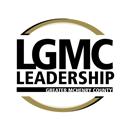Many journalists aren’t what you’d call “joiners.”
We’re skeptics, and group activities make us itchy. It’s not that we don’t like people, we dislike groupthink.
Years of pounding down doors to get information also have made some of us prickly or abrasive compared with normal people.
When someone mentions betterment seminars or enrichment courses, we get visions of trust falls, motivational speakers in bad neckties, endless clichés said without irony – raising your game, thinking outside the box, along with discussions about the GPS coordinates of someone’s cheese.
We expect awkward team exercises reminiscent of kids’ birthday party games – Pin the Core Value on the CEO. No thanks, I’ll be hiding under the Brand-Your-Own Cupcake bar.
So there was some apprehension in 2010 when told that I’d be the Northwest Herald’s next candidate for the 2011 graduating class of Leadership of Greater McHenry County – a commitment for a good several months.
Many Northwest Herald managers had attended over the years, including editor Jason Schaumburg and Dan McCaleb, group editor of Shaw Media’s suburban group.
I’m not 12 anymore. There are things grownups do whether they like it or not. I tried to keep the best attitude I could without completely betraying my naturally dubious disposition.
Long story short, I enjoyed my experience with LGMC and took away some lessons that I don’t expect to forget. Even better, I met some terrific people across the local, professional spectrum who are leaders in different ways.
Next year, the 10th graduating class of LGMC will assemble. Since its inception and as of July, 314 individuals will have graduated from the program designed to inspire local leaders and open their eyes to issues facing McHenry County. It’s not indoctrination; it’s awareness.
Marcy Piekos, executive director for LGMC, said the program arose from a combination of business leaders, McHenry County College officials and political leaders who recognized a need for more servant leadership and a network of leaders from across the county.
“Mike Easley [CEO of Centegra Health System] was really the catalyst,” Piekos said.
Piekos said McHenry County had strong civic organizations and many volunteers, but they often were operating in silos, and there wasn’t much communication among them. In addition to inspiring community leaders, it would be great if there was a communication network among them.
There are generally about 30 participants in each class – professionals from a wide range of disciplines and the age range varies by decades.
The effort is paying off in individual development and across McHenry County communities as LGMC graduates are taking the theory into action.
“Sixty percent [of graduates] at any given time are actively involved in the community – either volunteering or actively serving on nonprofit boards,” Piekos said. “Almost every major board has at least one alumn, if not more.”
Throw a rock at any major civic event in McHenry County, and you’ll probably hit an LGMC alumnus.
LGMC didn’t invent leadership in McHenry County, nor volunteering. There are plenty of key are leaders and volunteers who came about their passions in other ways and still do, but what LGMC is doing is making sure that new community leaders continue to emerge.
“The people we’re looking for as a candidate are people who are in leadership roles or are emerging leaders,” Piekos said. “We want people who are committed to the community and actually value volunteerism.”
When LGMC operatives talk about “networking,” they don’t mean it in the same terms as the Chamber of Commerce. If you’re looking at LGMC as a way to gather new real estate clients or business customers, you’ve come to the wrong place.
LGMC continues to communicate with alumni in a variety of ways and makes them aware of nonprofits who need board members or other specific needs sometimes fulfilled on Lend a Hand Day, when alumni help perform remodeling work at area nonprofits.
But the side benefits for participants are building some stronger leadership skills, gaining information on how governments and nonprofits work from the inside out and hearing from key leaders directly on curriculum days focused on topics including education, local government and law enforcement.
Piekos says she often gets feedback from alumni about their increased level of awareness.
“Now, when I read the newspaper, I know who these people are and many of them I can call and talk to them,” she said, summarizing alumni comments.
Plans are in the works to celebrate LGMC’s 10th anniversary as organizers are in the process of recruiting applicants for next year’s class. The deadline to apply is May 1.
For information about LGMC, check out the website at https://leadershipgmc.org, “like” them on Facebook or call Piekos at 815-337-8750.
